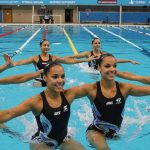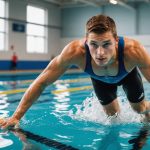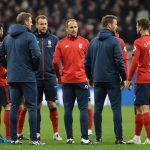In the competitive world of basketball, particularly within the UK, athletes face grueling schedules that demand peak performance. A double-header can push players to their limits, increasing the risk of fatigue and injury. Thus, effective recovery strategies are essential. This article delves into the top methods for post-game recuperation, supported by scientific research from platforms like Google Scholar, PubMed, Crossref, and more.
The Importance of Sleep for Athletic Recovery
Sleep is the cornerstone of recovery for any athlete, especially after intense physical exertion like a double-header. Sleep allows the body to repair tissues, consolidate memories, and regulate hormones, all of which are crucial for peak athletic performance.
In parallel : How can UK basketball players improve their vertical leap through strength training?
Research shows that a lack of sleep can significantly impair performance. According to studies available on PubMed, insufficient sleep can lead to mental fatigue, decreased reaction times, and diminished cognitive functions. For basketball players, this translates to slower reflexes and poorer decision-making on the court.
Optimal sleep hygiene involves maintaining a consistent sleep schedule, creating a restful environment, and avoiding stimulants like caffeine before bedtime. Tools such as sleep tracking apps can help monitor sleep patterns and identify areas for improvement. Google Scholar offers numerous articles that highlight the benefits of proper sleep for athletes, emphasizing its role in high performance and exercise recovery.
Also to read : Which dynamic warm-up routines are most beneficial for UK basketball players?
Nutrition: Fueling the Body for Recovery
Proper nutrition is another crucial element for post-game recovery. After a double-header, the body needs to replenish lost nutrients to repair muscles and restore energy levels. Carbohydrates, proteins, and fats each play a unique role in this process.
Carbohydrates are essential for replenishing glycogen stores, the primary source of energy during high-intensity activities. Proteins, on the other hand, aid in muscle repair and growth. Fats, while often overlooked, are vital for sustaining long-term energy levels.
Studies from Crossref and PubMed emphasize the need for a balanced diet rich in vitamins and minerals. Vitamins like C and E, along with minerals like zinc and magnesium, are crucial for reducing inflammation and aiding recovery. Hydration also plays a vital role; athletes should consume water and electrolyte-rich beverages to replace fluids lost through sweat.
Protein shakes, energy bars, and recovery drinks can provide a quick and efficient way to consume these nutrients. For those interested in the scientific backing, Google Scholar and Crossref offer numerous publications detailing the impact of nutrition on athletic performance and recovery.
Post-Exercise Techniques: From Stretching to Massage
After a double-header, implementing specific post-exercise techniques can significantly aid the recovery process. Stretching, for example, helps to reduce muscle stiffness and soreness while improving flexibility. Dynamic stretches, which involve movement, are particularly effective post-game.
Massage therapy is another beneficial technique. Studies from PubMed and other academic sources highlight the role of massage in enhancing blood flow, reducing muscle tension, and promoting relaxation. This can be particularly effective for teams with professional massage therapists on staff.
Foam rolling is a self-massage technique that can be easily incorporated into any athlete’s recovery routine. This method helps to break down scar tissue and improve circulation, speeding up the healing process.
For a more scientific approach, Google Scholar and PubMed offer a wealth of information on these techniques. These platforms provide free articles and systematic reviews that outline the best practices for post-exercise recovery.
Monitoring and Managing Mental Fatigue
Physical fatigue is not the only concern for athletes; mental fatigue can be equally debilitating. Mental exhaustion can lead to poor decision-making, decreased focus, and overall reduced performance. Managing this aspect is crucial for high performance in sports.
Mindfulness and meditation are effective strategies for combating mental fatigue. These practices help to clear the mind, reduce stress, and improve mental clarity. Apps and guided sessions are readily available and can be integrated into daily routines.
Regular team meetings and open communication can also alleviate mental fatigue. By discussing strategies, concerns, and experiences, players can feel more supported and less mentally drained.
For those interested in further reading, Google Scholar and PubMed offer numerous studies on the impact of mental fatigue on athletic performance. These resources provide invaluable insights into how team dynamics and mental health initiatives can enhance overall performance.
Importance of Strength and Conditioning Programs
A well-structured strength and conditioning program is vital for preventing injuries and improving performance. These programs should be tailored to the specific needs of basketball players, focusing on both strength and flexibility.
Strength training exercises help build muscle mass, improve endurance, and enhance overall performance. Conditioning drills, such as sprints and agility exercises, improve cardiovascular health and stamina. Together, these elements prepare athletes for the physical demands of a double-header.
Recovery within these programs is equally important. Incorporating rest days and low-intensity workouts can help prevent overtraining and reduce the risk of injury. Monitoring tools and wearable technology can track progress and highlight areas needing attention.
For those seeking detailed information on effective strength and conditioning programs, Google Scholar, PubMed, and Crossref are excellent resources. These platforms provide free articles and detailed studies on best practices for athletic performance and exercise recovery.
Recovering from a double-header involves more than just physical rest; it requires a holistic approach that includes sleep, nutrition, post-exercise techniques, mental health management, and structured strength and conditioning programs. Utilizing scientific research from platforms like Google Scholar, PubMed, and Crossref can provide invaluable insights into optimizing these strategies. By focusing on these key areas, UK basketball players can enhance their performance, reduce the risk of injury, and maintain their competitive edge.











